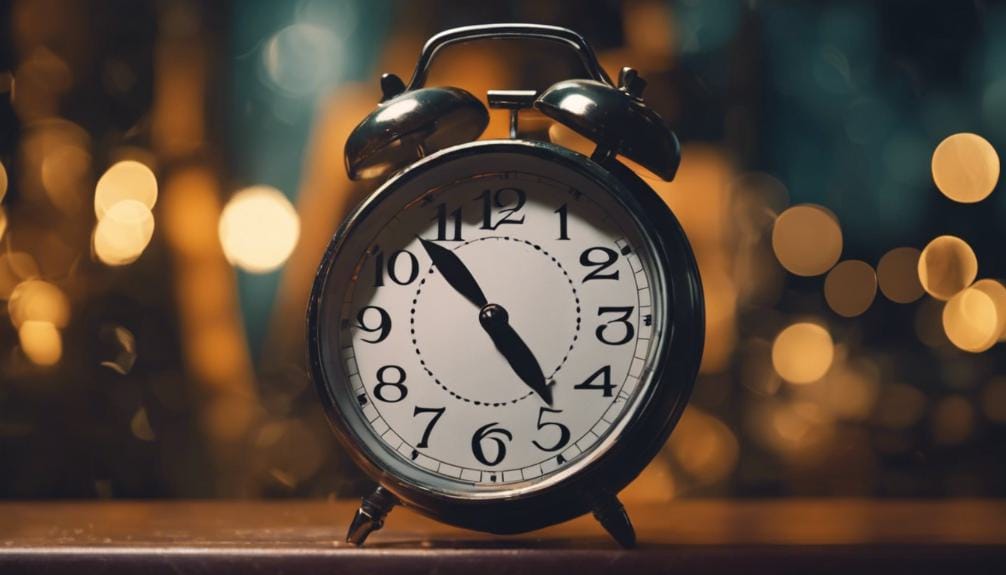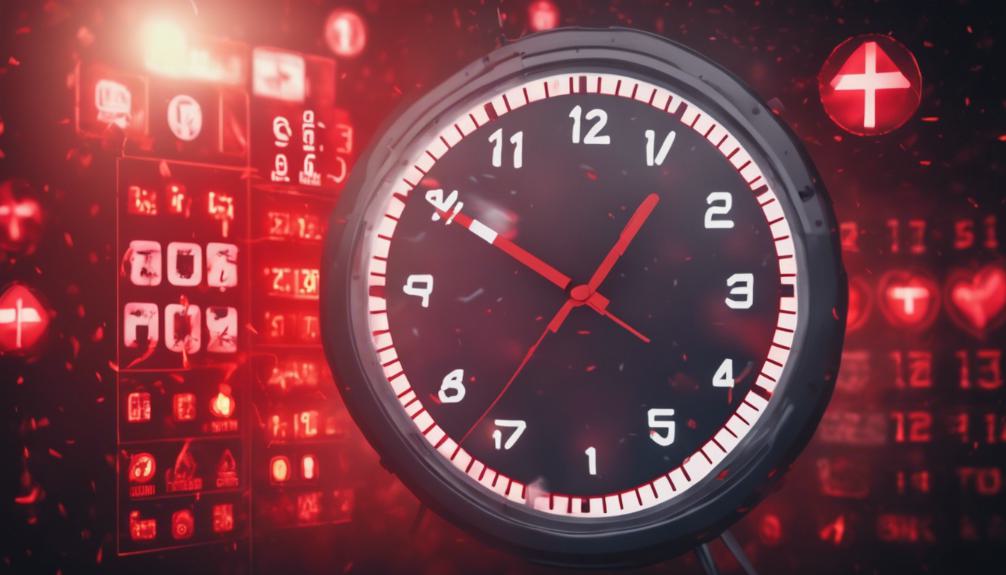How Long Can a Person Go Without Sleeping? Expert Insights Revealed
You can go without sleep for about 11 days, as recorded in extreme cases. After just 24 hours without sleep, cognitive and behavioral changes similar to a 0.10% blood alcohol concentration can occur. Going 36 hours awake can bring heightened anger, euphoria, and hallucinations. Remember, after 48 hours, decision-making abilities can suffer. Beyond 72 hours, you face severe impairments in cognitive function and an increased risk of accidents. The effects of sleep deprivation only worsen the longer you stay awake, impacting both your mental and physical well-being. Pushing the limits of sleeplessness reveals intriguing insights into human resilience.
Extreme Sleep Deprivation Records
Extreme sleep deprivation records demonstrate the extreme limits people push themselves to for the sake of staying awake. The longest recorded period without sleep is 11 days, impacting mental state and health.
In 2007, a man tried to break the world record with 266 hours awake. The serious consequences of prolonged sleeplessness, including health risks and overall well-being, led Guinness World Records to stop monitoring these extreme feats.
Effects After 24 Hours Without Sleep
Experiencing 24 hours without sleep can lead to significant cognitive and behavioral changes that mimic the effects of a blood alcohol concentration of 0.10%. Sleep deprivation for a full day can result in increased anxiety, agitation, and declining task performance.
Visual perception alterations, errors, and mistakes become more frequent, while social cue interpretation and visual depth perception can be compromised. Microsleeps may occur, signaling severe sleep deprivation consequences.
Impact After 36 Hours Awake

After being awake for 36 hours, individuals may start to experience heightened levels of anger, euphoria, and hallucinations, impacting their emotional regulation and cognitive functioning.
- Emotional regulation becomes challenging.
- Cognitive impairment and confusion set in.
- Hallucinations may affect perception of reality.
Consequences After 48 Hours Sleepless
Blurry or double vision may start to affect individuals who’ve been awake for 48 hours straight.
As the sleepless nights continue, hallucinations and reality distortions become more common.
Depersonalization, feeling detached from oneself, can occur, making it hard to differentiate between what’s real and what’s not.
Decision-making and judgment abilities may also suffer, highlighting the impairments that come with prolonged sleep deprivation.
Health Risks Beyond 72 Hours Without Sleep

Severe impairments in decision-making, judgment, and cognitive function commonly manifest beyond 72 hours without sleep.
Hallucinations involving multiple senses and distortions of reality can increase notably after 72 hours without sleep.
Increased risk of accidents and injuries due to extreme fatigue and cognitive decline.
Speech may become slurred, walking unsteady, and complex hallucinations may occur after prolonged sleep deprivation.
Frequently Asked Questions
How Long Can the Body Go Without Sleep Before Seeing Decline in Brain Function?
You start experiencing cognitive decline after just 24 hours without sleep, akin to a blood alcohol concentration of 0.10%. As time increases, inflammatory markers rise, impacting mood, metabolism, and coordination. After 72 hours, expect anxiety, hallucinations, and executive function issues.
What Are the 5 Stages of Sleep Deprivation?
When experiencing sleep deprivation, you may progress through five stages: mild alertness reduction, increased anxiety and agitation, hallucinations and confusion, blurry vision and depersonalization, and severe mental health decline, hallucinations, potentially leading to death.
How Long Can You Go Without Sleep Before Psychosis?
You risk experiencing psychosis after about 72 hours without sleep. Hallucinations, paranoia, and disorganized thinking may occur. Seek medical assistance immediately if you notice signs of psychosis from sleep deprivation. Your mental health is essential.
What Are the Symptoms of Extreme Sleep Deprivation?
When you experience extreme sleep deprivation, symptoms worsen rapidly. At 36 hours, expect anger and euphoria. By 48 hours, blurry vision and hallucinations arise. After 72 hours, cognitive decline and severe impairments set in. Beyond 72 hours, hallucinations multiply, reality blurs.
Conclusion
To sum up, while it’s possible for a person to push their limits and stay awake for extended periods of time, the consequences of sleep deprivation can have serious impacts on both physical and mental health.
It’s vital to prioritize getting enough rest to avoid the negative effects that come with prolonged periods of wakefulness.
Remember, sleep is essential for overall well-being and shouldn’t be taken for granted.
Stay healthy, stay rested.
